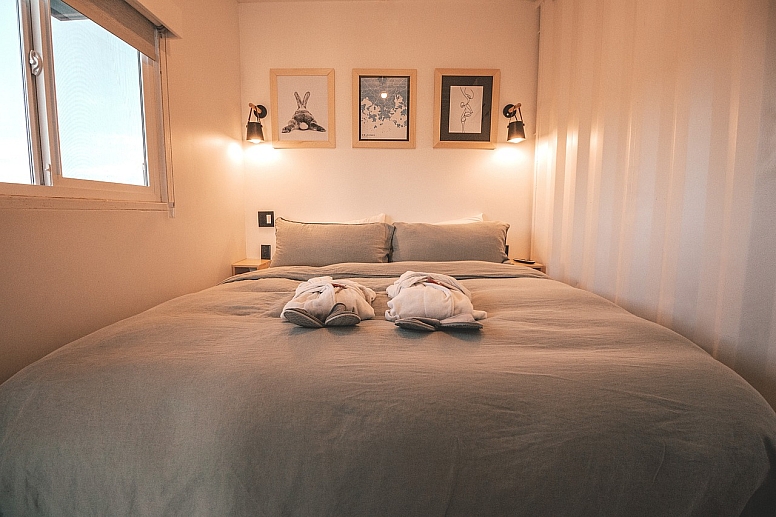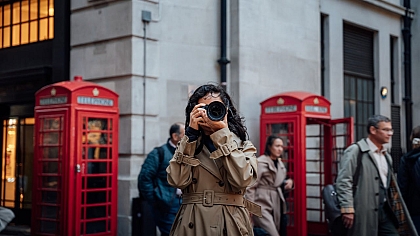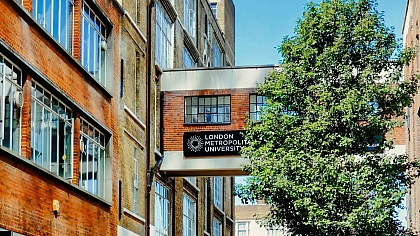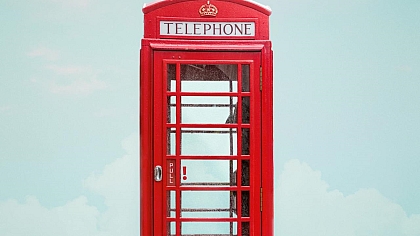
Ways Branding Plays a Role in London's Boutique Hotel Scene
The hotel and boutique industry in London is a thriving and competitive one. With thousands of visitors flocking to the city each year, hotels and boutique accommodations play a crucial role in ensuring a comfortable and memorable stay for tourists and business travellers alike.
According to a recent survey, 84% of travellers in London consider a hotel's brand reputation before making a booking decision. This statistic underscores the immense significance of branding for hotels and boutique establishments in the city.
If you are looking to succeed in the hospitality industry, investing in your branding efforts can make a positive difference. Let's highlight the five crucial ways in which branding impacts boutique hotels' success in London.
1. Establishes a Strong Brand Identity
Branding plays a monumental role in the construction of a robust brand identity. It goes beyond just a logo or a catchy slogan; it's the collective experience and perception that customers have of a business.
The foundation of any successful brand is a memorable visual identity. A well-designed hotel logo, created using a professional hotel logo maker, can encapsulate the essence of the establishment and serve as a symbol that guests associate with their experience.
A cohesive visual identity extends beyond just a logo. Studies reveal that consistent branding across all platforms can increase revenue by up to 23%.
It should be consistent across all touchpoints, from the hotel's website and social media profiles to physical collateral like brochures and signage. This consistency reinforces the brand image in the minds of potential guests and helps build trust.
2. Delivers a Personalized Guest Experience
In the world of boutique hotels, exceptional customer service is a hallmark of success. It's not just about meeting guest expectations but exceeding them.
Staff should embody the brand's personality and values, creating an emotional connection that keeps guests coming back.
Here are some ways hotels can deliver exceptional guest experience: Customize room amenities based on preferences.
- Offer personalized recommendations for dining and activities.
- Remember and cater to special occasions (birthdays, anniversaries).
- Provide a tailored welcome message or note in rooms.
- Anticipate guest needs and proactively address them.
- Provide a dedicated concierge for personalized assistance.
Happy guests often become brand advocates, sharing their positive experiences with others.
3. Social Media for Digital Presence
Social media has become an indispensable tool for building a strong brand identity, particularly in the digital age. With billions of users worldwide, platforms like Instagram, Facebook, and Twitter offer boutique hotels in London a global stage to showcase their unique personalities and offerings.
According to recent data, 70% of consumers in the UK feel more connected to brands they follow on social media, emphasizing the profound impact of these platforms on brand building.
Boutique hotels can shape their image, foster customer loyalty, and reach a broader audience through captivating visuals, engaging content, and direct interactions with their audience.
4. Defines Unique Value Proposition
In a city as diverse and vibrant as London, boutique hotels need to stand out from the crowd. This is where branding plays a pivotal role. It helps define a hotel's unique value proposition (UVP) — what makes it different from the plethora of accommodation options available.
A carefully crafted branding can help a hotel communicate its distinct personality, whether it's a historic townhouse with a rich legacy or a modern oasis of urban sophistication.
The UVP should permeate every aspect of the guest experience, from the design of the rooms to the selection of amenities. Here are some ways you can highlight the UVP of your hotel:
- Identify your target audience.
- Highlight your hotel's key features.
- Showcase exceptional customer service.
- Emphasize location advantages.
- Focus on special amenities or experiences.
- Highlight positive guest reviews and testimonials.
- Offer competitive pricing or value-added packages.
By consistently delivering on this promise, a boutique hotel solidifies its reputation and builds a loyal clientele who seek out this specific experience.
5. Navigates Pricing Strategies Smartly
A well-established brand allows a boutique hotel to implement effective pricing strategies.
A hotel can justify its premium pricing by simply communicating its value proposition and distinctiveness. Guests are often willing to pay a premium for an experience that aligns with their desires and expectations.
Additionally, a strong brand provides a platform for introducing special packages or promotions, further enticing potential guests, and encouraging repeat visits. This strategic use of branding in pricing contributes to the hotel's overall revenue and profitability.
Helpful Tips to Build a Strong Boutique Hotel Brand
Building a strong boutique hotel brand requires attention to detail and a deep understanding of your target audience. Here are three additional helpful tips to bolster your boutique hotel's brand:
1. Immerse Your Hotel in Local Culture
One of the distinguishing factors of boutique hotels is their ability to offer a unique and localized experience. To build a strong brand, immerse yourself in the local culture and heritage of your hotel's location. Showcase the essence of the neighbourhood through your branding efforts.
Collaborate with local artists, craftsmen, and artisans to incorporate authentic, region-specific decor and furnishings in your hotel's design. Highlight local artwork, textiles, and cultural elements that tell a story about the area's history and traditions.
2. Collaborations and Partnerships
Boutique hotels can enhance their brand appeal by collaborating with local businesses. This not only supports the community but also offers guests unique experiences.
Partnerships with nearby restaurants, art galleries, or spas can create memorable packages that attract guests seeking an authentic local experience.
Collaborating with travel bloggers and social media influencers can be a strategic move. Partnering with individuals who align with your brand values can expose your boutique hotel to a broader audience and generate valuable content for your marketing efforts.
3. Adapt and Evolve
Guest feedback is a goldmine of insights. Pay close attention to reviews on platforms like TripAdvisor, Google, and Yelp.
Positive reviews can reinforce your brand's strengths, while negative ones provide opportunities for improvement. Actively engage with guests' feedback and show your commitment to delivering exceptional experiences.
Brands that stand the test of time are those that adapt and evolve. The hospitality industry is dynamic, and guest preferences change.
Keep an eye on industry trends and be willing to make necessary adjustments to stay relevant. Your brand should not only reflect the past but also be forward-looking.
Branding is a multifaceted and dynamic tool that plays a crucial role in the success of London's boutique hotels.
In essence, effective branding isn't just a component of success; it is the very foundation upon which London's boutique hotels can build their legacy and continue to thrive in this dynamic and competitive arena.











